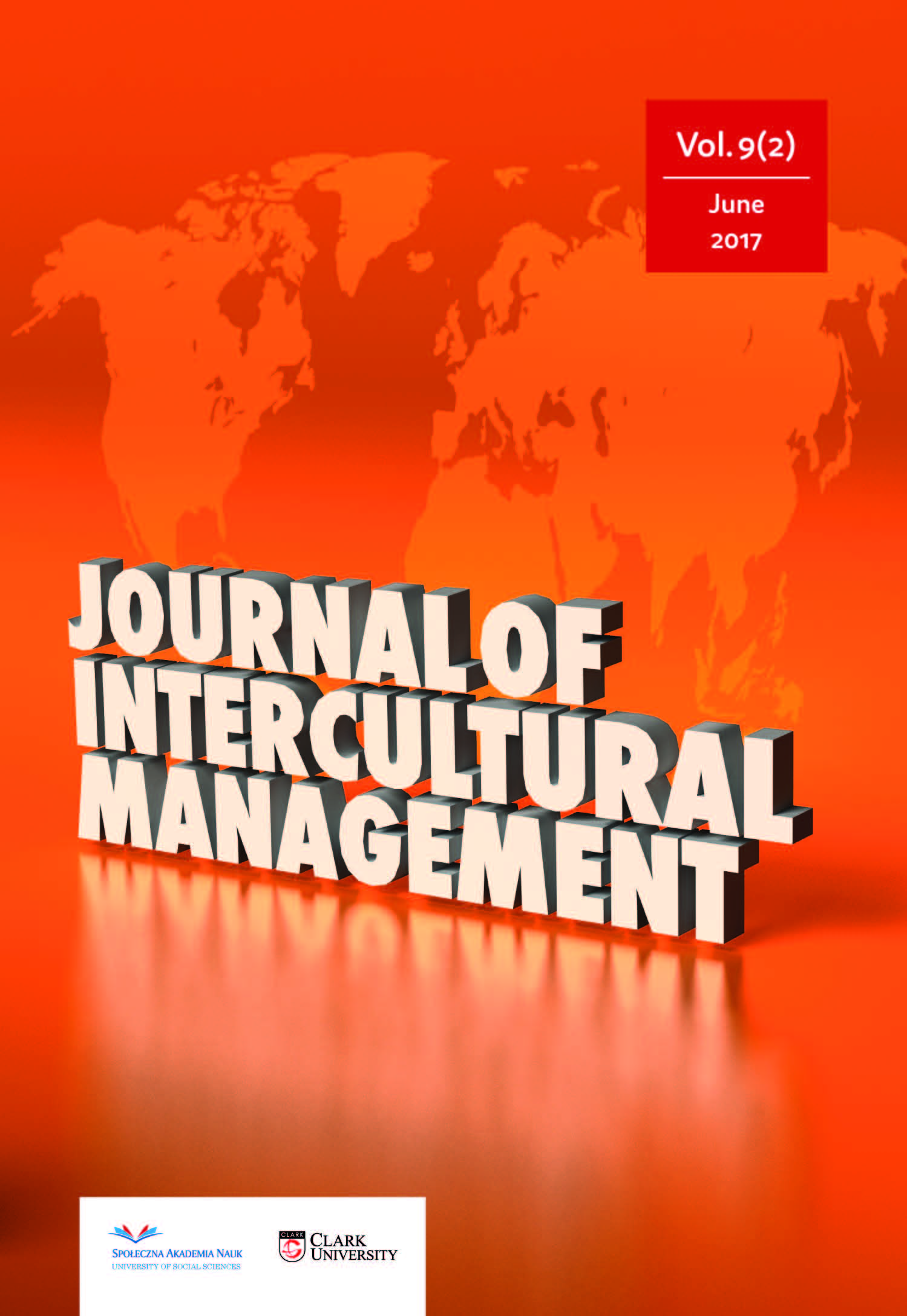Case Study about Germans and Thais: Impact of Locus of Control and Organization-Based Self-Esteem on Affective Organizational Commitment & Job Performance
Case Study about Germans and Thais: Impact of Locus of Control and Organization-Based Self-Esteem on Affective Organizational Commitment & Job Performance
Author(s): Susanne Rank, Teeradej PuapraditSubject(s): Business Economy / Management, Sociology
Published by: Społeczna Akademia Nauk
Keywords: German vs. Thai culture; locus of control; organization-based self-esteem; affective organizational commitment; job performance
Summary/Abstract: Individual self-evaluations like internal locus of control (ILOC) and organization-based self-esteem (OBSE) are discussed as personality traits relevant for positive work behavior of employees. Our case study focuses on the influence of these individual self-evaluations (ILOC & OBSE) on affective commitment and job performance in the contrary cultural settings of Germans and Thais. To test these assumptions, a case study was conducted with 196 German and Thai students with experience in workplaces. As independent variables ILOC and OBSEJournal of Intercultural ManagementVol. 9 | No. 2 | June 2017 | pp. 53–79DOI 10.1515/joim-2017-0008Susanne RankUniversity of Applied Sciences, Mainz, Germanysusanne.rank@hs-mainz.deTeeradej PuapraditAssumption University, Bangkok, Thailandwere assessed, three relevant cultural dimensions were chosen as independent variables: Incomparison to Germans, high power distance, femininity and collectivism should be predictedas cultural values of Thais. AOC and self-reported job performance were assessed as dependentvariables. Germans and Thais show different levels of three cultural values. Further findingsrevealed that Germans and Thais have identical levels of OBSE and job performance, but differin ILOC and AOC. Regression analyses were employed to validate the relationships between thevariables. Overall, nationality and masculinity impacted ILOC, whereas OBSE was influencedby masculinity and collectivism. In line with previous research, ILOC and OBSE predict AOC,surprisingly no cultural values impact AOC, but nationality does. Based on our hypothesis,job performance was impacted by ILOC, OBSE, AOC, and, however, also by masculinity. Theinfluence of nationality vs. cultural values is not consistent on both dependent variables.Regardless of their German vs. Thai nationality our participants, i.e. highly qualified people,share masculinity as a common value. Confirming previous studies, self-esteem like ILOC andOBSE are valid predictors for commitment and job performance. Limitations and outlook forfurther research are discussed.
Journal: Journal of Intercultural Management
- Issue Year: 9/2017
- Issue No: 2
- Page Range: 53-79
- Page Count: 27
- Language: English

